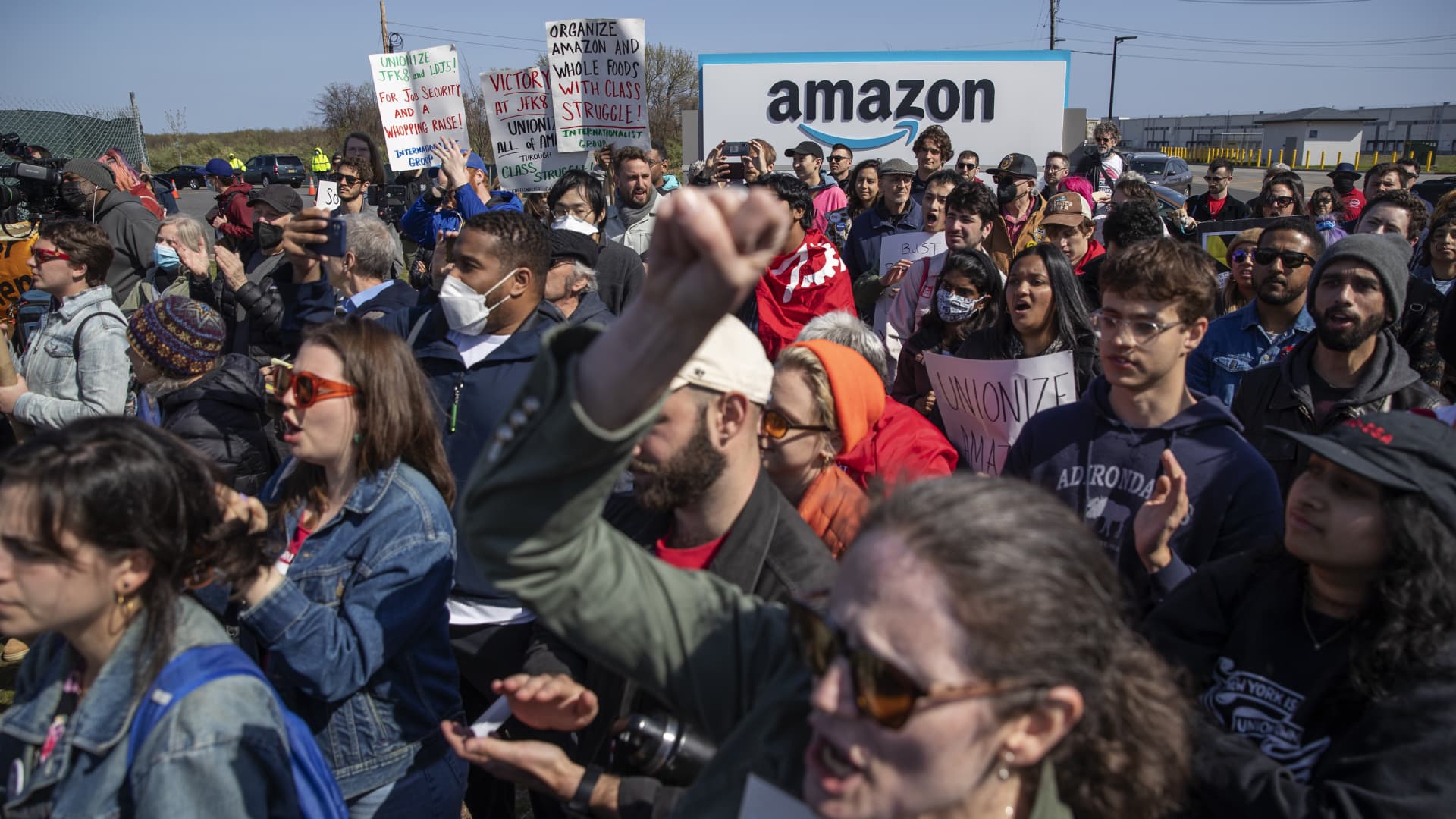In a significant ruling, a National Labor Relations Board (NLRB) judge has declared that Amazon and its consultants violated federal labor laws by intimidating and threatening employees engaged in union activities, along with racially abusing organizers at the Staten Island warehouse, JFK8. The verdict, delivered by Administrative Law Judge Lauren Esposito, identifies “numerous violations” that occurred between May and October 2021.
Organizing Activities and Union Victory
The period in question saw a surge in organizing activities, culminating in a landmark victory for employees in April 2022, who voted to join the Amazon Labor Union (ALU). Despite this achievement, the ALU has faced challenges in reaching a contract agreement with Amazon, leading to an ongoing struggle.
Violations and Retaliation
The judge’s decision, informed by extensive virtual hearings lasting nearly a year, reveals that Amazon committed various violations, including illegally confiscating organizing booklets from employees and monitoring their union activities. The ruling also holds Amazon accountable for retaliation against an employee supporting the union, Dequan Smith, who was sent home early and later fired in November 2021.
Threats and Intimidation
A significant violation highlighted in the ruling involves a “union avoidance” consultant, Bradley Moss, hired by Amazon. Moss was accused of threatening workers and dismissing the significance of voting to join ALU. The judge’s decision sheds light on Moss characterizing the Bessemer campaign in Alabama as a “Black Lives Matter protest against social injustice,” casting aspersions on the unionization efforts.
Consequences and Remedies
As a consequence of the ruling, Amazon is mandated to post notices at JFK8 and DYY6 facilities, reminding workers of their rights. Additionally, the company is directed to compensate Dequan Smith for any loss of earnings and benefits. The ruling spotlights the prevalent use of “instigators” by companies like Amazon to dissuade workers from forming unions, as seen in Moss’s role as a consultant.
Amazon’s Response and Ongoing Challenges
Amazon, while reviewing the ruling, expressed disagreement with some aspects but indicated satisfaction with the judge’s decision not to reinstate the dismissed individual. The company’s labor practices have faced heightened scrutiny, with ongoing challenges and clashes with union leaders, notably Chris Smalls.
Conclusion
The NLRB judge’s ruling against Amazon underscores the complexities and controversies surrounding the e-commerce giant’s labor practices. The findings contribute to the broader narrative of the challenges faced by workers in asserting their rights in the evolving landscape of e-commerce and labor relations. The repercussions of this decision are likely to resonate beyond the specific case, influencing discussions on workers’ rights and fair labor practices in large corporations.







